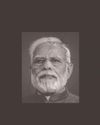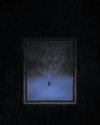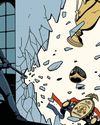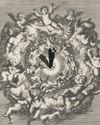
In March 1774, Prince Grigory Potemkin, the favorite general and sometime lover of Catherine the Great, took control of the anarchic southern frontier of her empire, a region previously ruled by the Mongol Khans, the Cossack hosts, and the Ottoman Turks, among others. As viceroy, Potemkin waged war and founded cities, among them Kherson, the first home of Russia’s Black Sea Fleet. In 1783, he annexed Crimea and became an avatar of imperial glory. To Vladimir Putin in particular, Potemkin is the Russian nationalist who subdued territory now impudently and illegitimately claimed by Ukraine, a nation that Putin believes does not exist.
The rest of the world remembers Potemkin differently, for something that we would now call a disinformation campaign. In 1787, Catherine paid a six-month visit to Crimea and the land then known as New Russia. The story goes that Potemkin built fake villages along her route, populated with fake villagers exuding fake prosperity. These villages probably never existed, but the story has endured for a reason: The sycophantic courtier, creating false images for the empress, is a figure we know from other times and other places. The tale also evokes something we recognize to be true, not just of imperial Russia but of Putin’s Russia, where mind-boggling efforts are made to please the leader—efforts that these days include telling him he is winning a war that he is most definitely not winning.
Denne historien er fra June 2023-utgaven av The Atlantic.
Start din 7-dagers gratis prøveperiode på Magzter GOLD for å få tilgang til tusenvis av utvalgte premiumhistorier og 9000+ magasiner og aviser.
Allerede abonnent ? Logg på
Denne historien er fra June 2023-utgaven av The Atlantic.
Start din 7-dagers gratis prøveperiode på Magzter GOLD for å få tilgang til tusenvis av utvalgte premiumhistorier og 9000+ magasiner og aviser.
Allerede abonnent? Logg på

Apocalypse, Constantly
Humans love to imagine their own demise.

A Palestinian American Sex and the City
Betty Shamieh's debut novel is a rebellious rom-com.

Modi's Failure
Why India is losing faith in its strongman leader

The Anti-Social Century
Americans are now spending more time alone than ever. It's changing our personalities, our politics, and even our relationship to reality.

The Wild Charity of Saint Francis
The guide we need, now that kindness is countercultural

Where Han Kang's Nightmares Come From
In her novels, the South Korean Nobel laureate returns again and again to her countrys bloody past.

TROPHY HUNTERS
A GROUP OF CHILDHOOD FRIENDS PULLED OFF A STRING OF THE MOST AUDACIOUS SPORTS-MEMORABILIA HEISTS IN AMERICAN HISTORY. THEN THEY DID SOMETHING REALLY CRAZY.

THE NEW RASPUTINS
Anti-science mysticism is enabling autocracy around the globe.

ARMY OF GOD
AMERICAN CHRISTIANS ARE EMBRACING A CHARISMATIC MOVEMENT KNOWN AS THE NEW APOSTOLIC REFORMATION, WHICH SEEKS TO DESTROY THE SECULAR STATE. Now THEIR WAR BEGINS.

WHAT NOT TO WEAR
The false promise of seasonal-color analysis